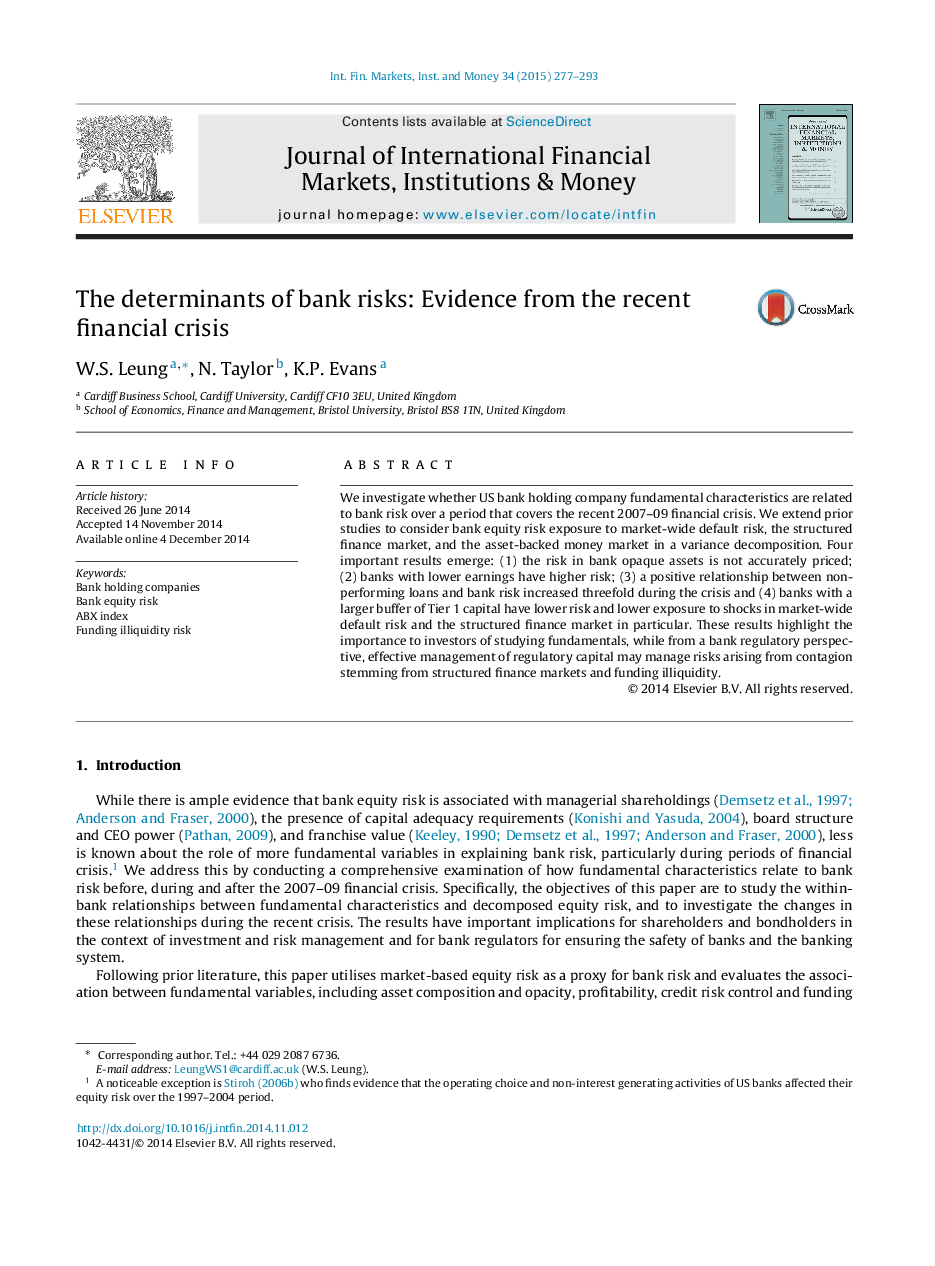| Article ID | Journal | Published Year | Pages | File Type |
|---|---|---|---|---|
| 7364766 | Journal of International Financial Markets, Institutions and Money | 2015 | 17 Pages |
Abstract
We investigate whether US bank holding company fundamental characteristics are related to bank risk over a period that covers the recent 2007-09 financial crisis. We extend prior studies to consider bank equity risk exposure to market-wide default risk, the structured finance market, and the asset-backed money market in a variance decomposition. Four important results emerge: (1) the risk in bank opaque assets is not accurately priced; (2) banks with lower earnings have higher risk; (3) a positive relationship between non-performing loans and bank risk increased threefold during the crisis and (4) banks with a larger buffer of Tier 1 capital have lower risk and lower exposure to shocks in market-wide default risk and the structured finance market in particular. These results highlight the importance to investors of studying fundamentals, while from a bank regulatory perspective, effective management of regulatory capital may manage risks arising from contagion stemming from structured finance markets and funding illiquidity.
Keywords
Related Topics
Social Sciences and Humanities
Economics, Econometrics and Finance
Economics and Econometrics
Authors
W.S. Leung, N. Taylor, K.P. Evans,
